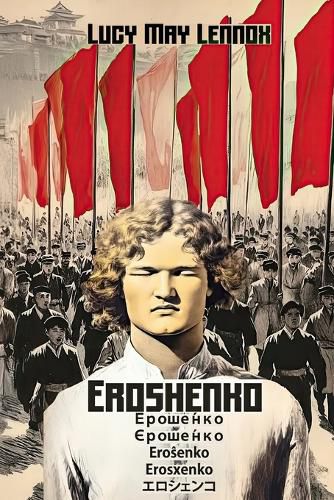Readings Newsletter
Become a Readings Member to make your shopping experience even easier.
Sign in or sign up for free!
You’re not far away from qualifying for FREE standard shipping within Australia
You’ve qualified for FREE standard shipping within Australia
The cart is loading…






This title is printed to order. This book may have been self-published. If so, we cannot guarantee the quality of the content. In the main most books will have gone through the editing process however some may not. We therefore suggest that you be aware of this before ordering this book. If in doubt check either the author or publisher’s details as we are unable to accept any returns unless they are faulty. Please contact us if you have any questions.
Tokyo, 1915
While WWI rages, half a world away, Tokyo is a hotbed of radical ideas, as cosmopolitan intellectuals and activists from around the world cross paths in a rapidly modernizing city. Socialists and anarchists, musicians and artists from Japan, China, Korea, India, and Russia all passionately advocate for a more just and equal world.
Blind Ukrainian Vasily Eroshenko is drawn to Tokyo in search of greater opportunities and respect for blind people. At a salon for radicals on the second floor of a bakery, he meets the anarcho-feminists of Bluestocking magazine, fearless women fighting for bodily autonomy and free love.
Kamichika Ichiko is a contributor to Bluestocking and the first woman reporter at the Tokyo Daily News. She is most at home among the Bluestockings who dress like men and engage in "sister" relationships. Yet she is drawn to Eroshenko and helps him publish his political fables.
As Eroshenko becomes a celebrated writer and public speaker, he becomes more outspoken in advocating for socialism, feminism, and disability rights, but the authorities will not long tolerate this disruptive foreigner.
Based on extraordinary, heartbreaking true events, Eroshenko is a wild fever dream of utopianism, polyamory, artistic creation, jealousy, and persecution, unfurling against the backdrop of Japan's belle epoque, called Taisho Romanticism. When high and low, East and West, old and new intermingled, these activists dreamed of a better world, trying to stem the tide of growing fascism.
$9.00 standard shipping within Australia
FREE standard shipping within Australia for orders over $100.00
Express & International shipping calculated at checkout
This title is printed to order. This book may have been self-published. If so, we cannot guarantee the quality of the content. In the main most books will have gone through the editing process however some may not. We therefore suggest that you be aware of this before ordering this book. If in doubt check either the author or publisher’s details as we are unable to accept any returns unless they are faulty. Please contact us if you have any questions.
Tokyo, 1915
While WWI rages, half a world away, Tokyo is a hotbed of radical ideas, as cosmopolitan intellectuals and activists from around the world cross paths in a rapidly modernizing city. Socialists and anarchists, musicians and artists from Japan, China, Korea, India, and Russia all passionately advocate for a more just and equal world.
Blind Ukrainian Vasily Eroshenko is drawn to Tokyo in search of greater opportunities and respect for blind people. At a salon for radicals on the second floor of a bakery, he meets the anarcho-feminists of Bluestocking magazine, fearless women fighting for bodily autonomy and free love.
Kamichika Ichiko is a contributor to Bluestocking and the first woman reporter at the Tokyo Daily News. She is most at home among the Bluestockings who dress like men and engage in "sister" relationships. Yet she is drawn to Eroshenko and helps him publish his political fables.
As Eroshenko becomes a celebrated writer and public speaker, he becomes more outspoken in advocating for socialism, feminism, and disability rights, but the authorities will not long tolerate this disruptive foreigner.
Based on extraordinary, heartbreaking true events, Eroshenko is a wild fever dream of utopianism, polyamory, artistic creation, jealousy, and persecution, unfurling against the backdrop of Japan's belle epoque, called Taisho Romanticism. When high and low, East and West, old and new intermingled, these activists dreamed of a better world, trying to stem the tide of growing fascism.